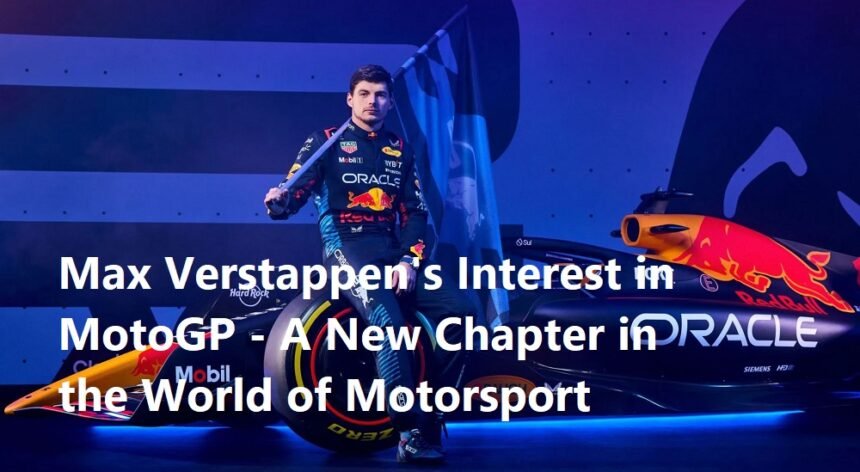Max Verstappen, the reigning Formula 1 World Champion for the year 2024, has captured the attention of motorsport enthusiasts not only for his extraordinary talent on four wheels but also for his recent declaration of interest in competing in MotoGP. This revelation opens a compelling dialogue around the parallels and differences between these two prestigious disciplines, as well as the potential implications for Verstappen’s career trajectory.
Verstappen, who drives for Red Bull Racing, has established himself as one of the most formidable competitors in the history of Formula 1. His aggressive driving style, sharp instincts, and remarkable ability to navigate complex race scenarios have earned him accolades and victories, culminating in his domination of the 2024 season. Yet, in a surprising twist during a recent press conference, the Dutch driver expressed a desire to explore the world of motorcycle racing, specifically MotoGP. This admission has sparked intrigue and speculation among fans and analysts alike.
The allure of MotoGP, with its blend of speed, skill, and raw adrenaline, presents an exciting challenge for Verstappen. Unlike Formula 1, where the technological intricacies of the car play a crucial role, MotoGP places significant emphasis on the rider’s physical prowess, balance, and reflexes. The transition from four wheels to two introduces a vastly different set of dynamics: the need for greater physical agility and an understanding of motorcycle handling, which are essential for success on the racetrack.
Verstappen’s interest may stem from the shared passion that characterizes both Formula 1 and MotoGP. Both sports demand a high level of precision, concentration, and a competitive spirit. The idea of competing against some of the best riders in the world, including legends such as Valentino Rossi and current stars like Francesco Bagnaia and Fabio Quartararo, could be enticing for Verstappen. The possibility of testing his limits in a different form of motorsport might provide him with the thrill and excitement that accompany the pursuit of new challenges.
Moreover, the intersection of motorsport disciplines is not an uncommon phenomenon. Several high-profile athletes have transitioned between categories, showcasing their versatility and broadening their appeal. For instance, the likes of John McGuinness and Troy Bayliss have ventured into car racing, while Formula 1 legends, such as Michael Schumacher, have attempted motorcycle racing, albeit with varying levels of success. Such cross-disciplinary pursuits not only enhance a driver’s profile but also encourage a shared appreciation for the multifaceted nature of motorsport among fans.
However, the prospect of Verstappen entering MotoGP is not without its challenges. The physical demands of motorcycle racing significantly differ from those of driving a Formula 1 car. The need for extensive training, adaptation, and mastering new techniques cannot be underestimated. Moreover, the risk factor in MotoGP is distinctly pronounced, as the stakes involve higher instances of crashes and injuries when compared to Formula 1. Verstappen would need to consider these aspects seriously before embarking on such a venture.
In conclusion, Max Verstappen’s expressed interest in competing in MotoGP brings forth an intriguing concept of multi-discipline participation in motorsport. This potential career shift could not only enrich his personal journey but also captivate an audience longing for fresh narratives in the world of racing. As he continues to dominate the F1 circuit, the possibility of Verstappen engaging in MotoGP raises questions about the future of motorsport, the boundaries of athleticism, and the unyielding pursuit of excellence across different racing platforms. Whether this aspiration becomes a reality remains to be seen, but it certainly adds an exciting dimension to Verstappen’s already illustrious career.













